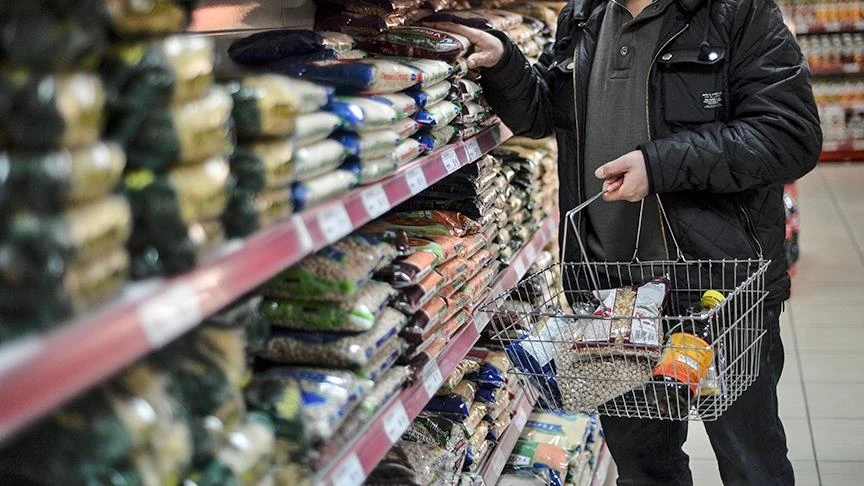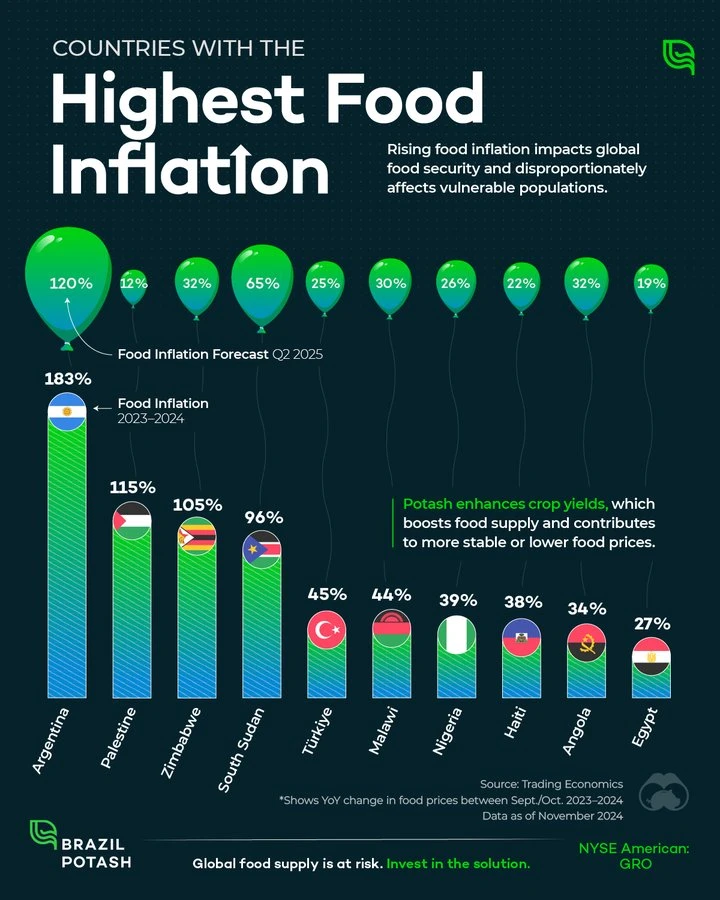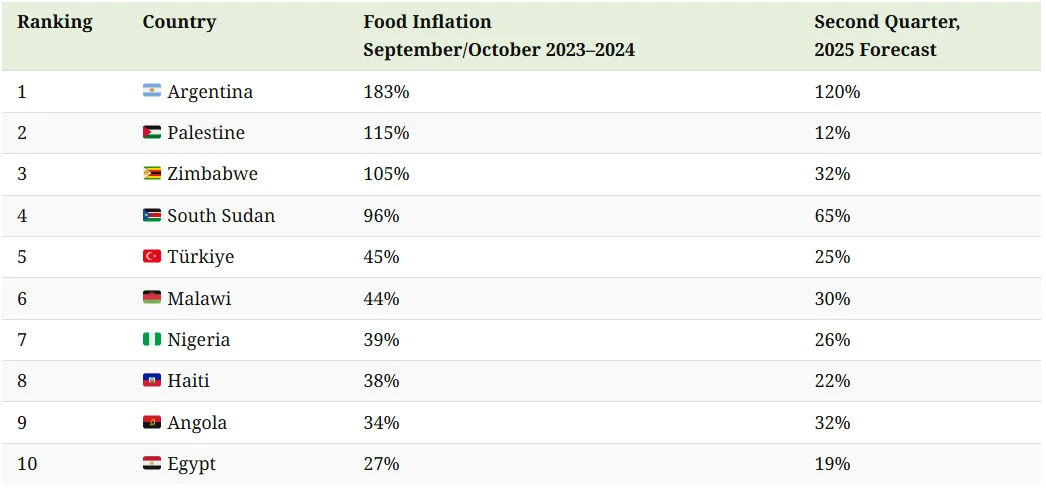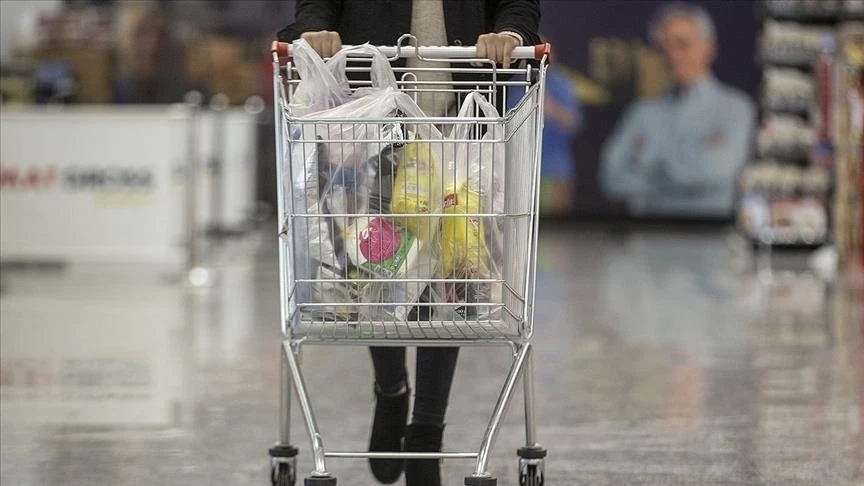Türkiye among hardest hit by soaring food prices, ranking 5th in global food inflation
 File photo shows an individual shopping in a grocery shop in Türkiye, accessed on Dec. 3, 2024. (AA Photo)
File photo shows an individual shopping in a grocery shop in Türkiye, accessed on Dec. 3, 2024. (AA Photo)
Soaring food inflation is threatening global food security, with Türkiye ranking as one of the countries most severely affected. As food prices continue to rise, low-income populations are finding it increasingly difficult to access basic food items, exacerbating food insecurity both globally and within Türkiye.
According to 2024 data from Trading Economics, Türkiye holds the fifth-highest food inflation rate in the world, with 45% food inflation rate. However, it is expected to fall to 25% in the second quarter of 2025.
This surge in food prices is becoming a significant concern, particularly for lower-income families who are struggling to meet their basic food needs. The rising costs are also impacting household budgets, leaving less room for other essential expenses.

Argentina tops the list with 183%
The global food inflation crisis is most pronounced in countries like Argentina, Palestine, and several African nations.
Argentina tops the list with a staggering 183% annual increase in food prices, followed by Palestine under Israeli occupation with a 115% increase.
However, Türkiye’s 45% food inflation rate highlights the severity of the issue domestically.

The situation is not just a financial strain but a public health concern as the rise in food prices is making it even harder for low-income families to access essential food products, leading to health problems and malnutrition.
Meanwhile, the increasing prices are making it harder for low-income families in Türkiye to access essential food products, leading to potential health problems and malnutrition. This trend is being felt worldwide, with vulnerable populations bearing the brunt of the rising costs.

Which countries are most affected?
While Türkiye grapples with rising food costs, other regions are also experiencing steep inflation.
Countries in Africa, such as Zimbabwe and South Sudan, are seeing food inflation rates as high as 105% and 96%, respectively. Developing economies, where food expenditures make up a significant portion of household budgets, are disproportionately affected.
Argentina, which leads the global list, is expected to continue facing high food inflation into 2025.
Meanwhile Palestine, although currently second on the list, is projected to see a significant drop in food inflation by mid-2025.



